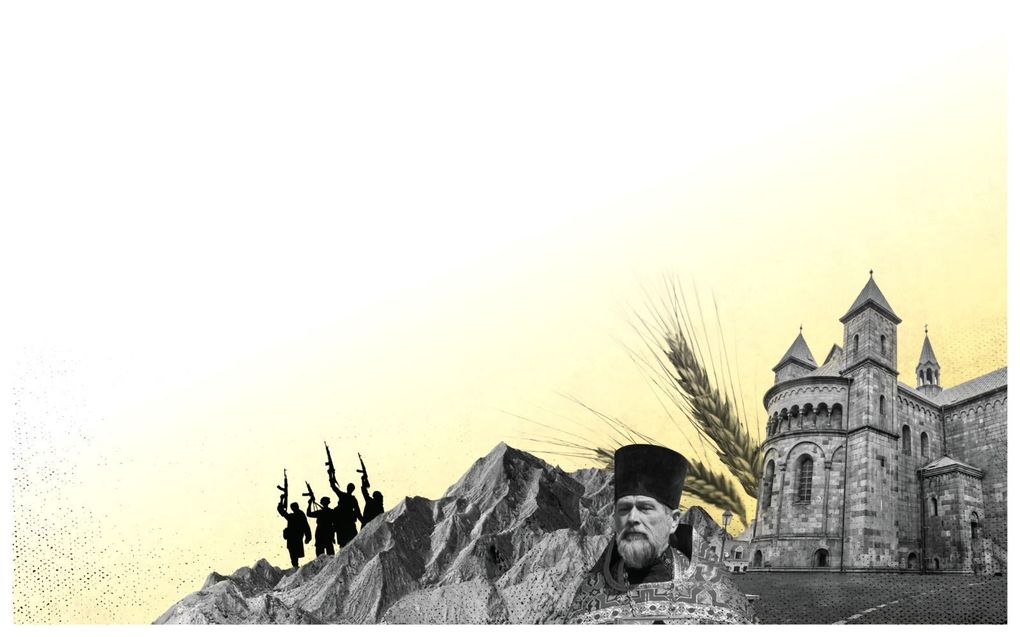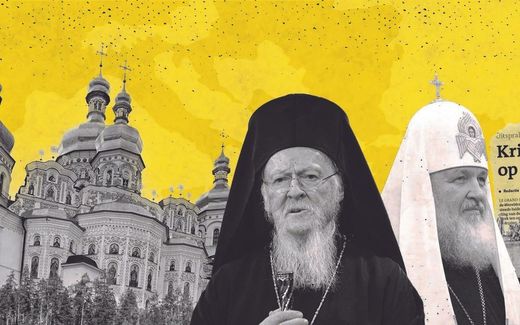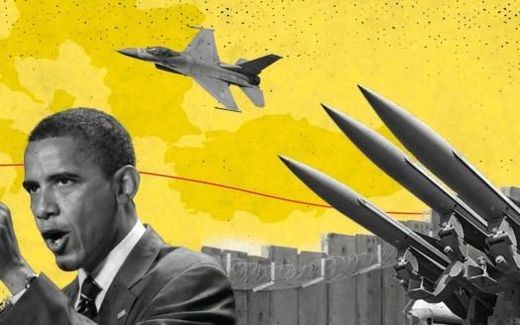Blaming the other in advance (part 1/6)
14-04-2022
Opinion
Jakob Hoekman, RD

Photo RD
Opinion
Annoying. That is the best word to describe my opinion on the accusations that Europe would be racist. Only a day before the writing of this article, my Islamic friend – a recent graduate in the doctrine of the Sharian law – judged Europe. Why are dark-skinned people kept separate at the Polish-Ukrainian border? Why does the West scream bloody murder the moment Ukraine is attacked, while the same happened in Syria eleven years ago?
Almost every European knows accusations of racism. I can handle quite a bit regarding these accusations; otherwise, I would not have moved to the Arabic Peninsula. But at a certain point, it becomes too much. The Gulf States, where I live, have a level of racism that Europe does not even come close to.
Someone who visits these countries will see it right away. Bengals, Filipinos, and Pakistanis all belong to the lowest classes in society. Other nationalities, such as Western peoples, are far above them. But on top of the ladder are the Emiratis, the Qataris, and the Kuwaitis themselves.
Therefore, I had my response for the Islamic law scholar ready last night. About the institutional racism in the Arab world. About the fact that Germany alone has taken in more than a million Syrians, while the Arabian States barely housed anyone. About the remarkable fact that some people delight in scapegoating Europe and America in any way they can, while at the same time they are desperate to go there.
However, I said nothing of the sort. I realised just in time that such discussions are usually fruitless. Defending yourself with theoretical concepts and abstract ideas does not work, is my experience. It is better to keep it small, for example, by showing that I do not want to be a racist myself. In everyday practice.
Radical redemption
In the meantime, it became clear to me: my natural defence mechanism still works perfectly. Others are equally guilty of racism as we are. I experience more nationalist feelings abroad than I ever did in the Netherlands.
I am convinced that I am not the only one who feels that way. It is bizarre to see how any nuance has been erased since Russia invaded Ukraine. It is remarkable how fast ranks are closing. Everything Russian is suspicious.
I am not called to defend Russia or Putin. Besides, that would be very difficult. How would you defend someone who invades another country and spreads death and destruction?
What I do want to do, is to understand Putin. Just like I want to understand a Muslim extremist and my friend who is an expert in Sharia law. Why do they act as they do?
Years ago, I already noticed that it is not self-evident to desire to understand a Jihadist. When the threats of terrorist attacks are real, only one principle is valid: a brutal crackdown. To try to get into the head of an extremist is something you should not even want.
But that attitude is problematic, I think. Because how would you stop people if you do not understand why they act as they do? How can you then be sure that you are not pouring oil on the flames instead of extinguishing the fire?
Despite the mainstream beliefs, Dutch professor Beatrice de Graaf has put much effort into understanding the other. Last year, she published her book "Radical Redemption." Her work can be interpreted as an attempt to apprehend terrorists. Terrorists are almost always looking for redemption, she proves. They hope to find redemption in bombs and grenades, but these means almost always leave them empty. That is, if they survive their attack or their participation in a war.
De Graaf lets her light shine on the war in Russia. She tells the public about Putin's drive: the restoration of the Russian empire that once was mighty and big, in which the Russian Orthodox Church plays a central role, and in which Moscow becomes the third Rome, after Rome and Constantinople. De Graaf also explains why Kyiv and the Crimean Peninsula play an essential role.
But even if you genuinely want to understand the other, it is not easy. Just take the concept of being the third Rome. Secular people are not used to thinking in terms of religious drives, especially not when they are tightly connected to political goals. And then we do not even talk about cultural differences. It is much easier to let the other just be strange.
I and you
Fortunately, some other voices are heard, for example, the voice of one of the greatest Ukrainian thinkers ever. That is the 20th-century Jewish philosopher Martin Buber. He grew up in Lviv, in Western Ukraine. Buber made it his life's work to build bridges between East and West, between tradition and science, and between Jew and Christian.
His most influential work is called 'Ich und Du": I and you. Us and them. But the remarkable thing is that Buber does not portray I and you as opposites. He argues that the "I" can only exist by the grace of the "you", he argues. Man only becomes genuinely human when he actually meets the other. Or when he meets the Other with a capital letter. For Buber, a meeting is never merely horizontal or without obligations.
Such a meeting sounds nice. However, the problem with it is that all too often, we only want to meet people of whom we know that they share our opinion. That is why a church with all like-minded souls feels so comfortable. The shutters can be closed because all agree on the answers.
But sometimes, other voices suddenly break into our worldview. Just take the minister in Lebanon, who passionately defends Hezbollah, when we had just written in capital letters that Israel is correct by definition and Hezbollah is evil by definition. Now we have to start thinking the whole process over again, can't we? It is much easier to say that that minister is wrong. That way, we can close the front together.
Group identity determines individual identity
We all belong to a group where answers should not be questioned. The group we belong to determines our identity. The famous psychologist Abraham Maslov places "belonging" immediately after physical needs such as food, drink and security in his pyramid of human needs. It is not rational considerations but this deeply experienced identity that often determines our reaction to events.
Thus, people in the Middle East are automatically on the side of Putin and Russia at the moment. Their simple motivation is that Russia has many Muslims within its borders, and Ukraine does not. And for the simple reason that the Ukrainian president Zelensky is a Jew and Putin is not.
This principle can be seen everywhere. By its grace, the phenomenon of the opinion maker can exist. What do my club, newspaper, and church say about Russia? What do they tell about Israel and Muslims? Whoever internalises these answers is in the right place. People who think differently must be prepared to endure a great deal of resistance.
We may belong to a club, but that does not mean we see ourselves as herd animals. Especially not in the West. Whatever you may think about it, Western European Christians are also influenced by the era of Enlightenment. We are more individualistic than we like to believe. Even our theology reflects that. The Western, individualistic emphasis on how I get to heaven is not found anywhere else. Just try to explain that to Patriarch Kirill in Moscow, who tries to put his church on the side of the Russian community. In return, we do not understand his position either. So, there is not only an opposition between "us" and "them" but also between "us" versus "me". The side of the "I", individualism, usually pretends to be much more powerful than the side of the "we", collectivism.
The best way to make the scope visible is to make it concrete
Sarah Lanier, an expert in cultural differences, provides a beautiful example of this in her book "Why are we different?" (2012). At a conference, participants were asked for their opinion on whether or not to translate simultaneously. A Bolivian stood up and explained why it was better to translate a text sentence by sentence and not simultaneously. After that, several Westerners who wanted to save time argued for simultaneous translation. The chairman cut the Gordian knot: the westerners got their way because they were apparently in the majority. But the chairman missed the whole point: it was the Bolivian who represented the majority. He had spoken on behalf of all those present from collective cultures. In contrast, those favouring simultaneous interpretation had only spoken for themselves.
All the elements in this story revolve around the contrast between us and them, the very distinction that Martin Buber makes a condition for real life. Now that is nicely said, but how does that work? Aren't these all big words just about theoretical concepts and abstract ideas? The very things that usually do not work in practice?
True. And yet, those concepts and ideas have an enormous scope. In my conversation last night with the Islamic law scholar, I became aware once again that the best way to make that scope visible is to make it concrete. By keeping it close to yourself.
That, of course, is the experience of many. That is why the editors think it is a good idea to start a column that is not about individualism, racism, or other big concepts but that translates these ideas into manageable practices of today. With questions that are not pretentious, questions that appear in the daily news. News that is very often about others, but also about ourselves. Why is Kyiv so important to the Russians? What exactly is the threat posed by nuclear weapons? Why is one country so nationalistic and the other is not? Or, as in the first episode today: why is NATO a key concept in this war?
The answers will not be earth-shattering. They are, however, intended to be based on reliable information. Based on verifiable sources. In a time of fake news, it is more important than ever to show what those sources are. Think of hearing both sides of the argument, showing facts from history, reports and documents, and research results. In short, the information you can rely on. One never knows whether these articles may provide something to hold on to when reality and truth have become options that you can safely disregard. A handhold, admittedly, from a Western perspective, but one in which, hopefully, the voice of the other always resounds. Because the other is more like us than we would like to believe.
This article was translated by CNE.news and published earlier by Dutch daily Reformatorisch Dagblad on March 19th, 2022.
Related Articles






